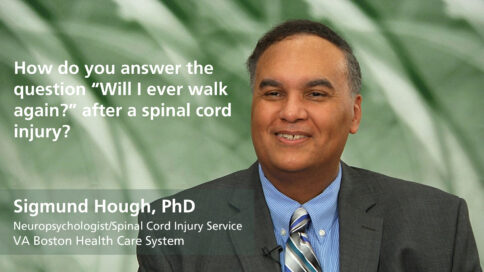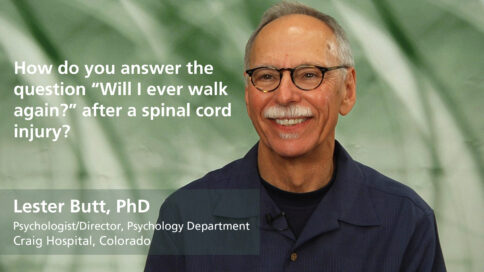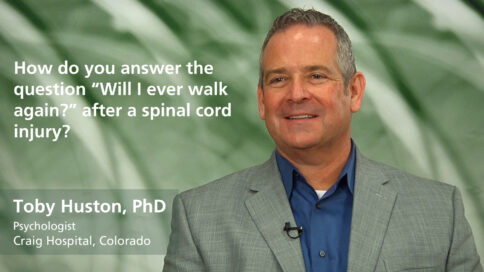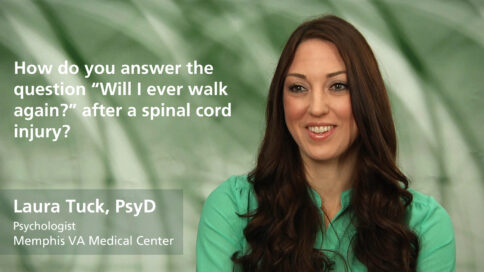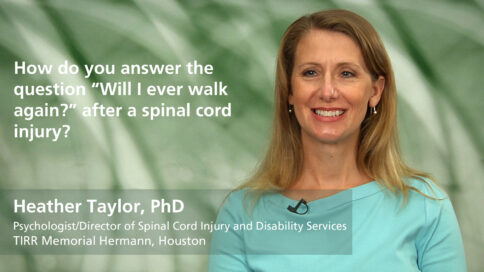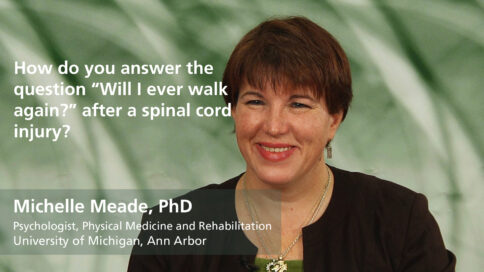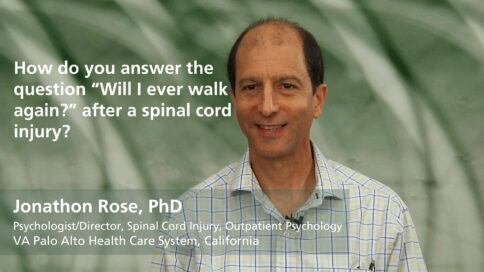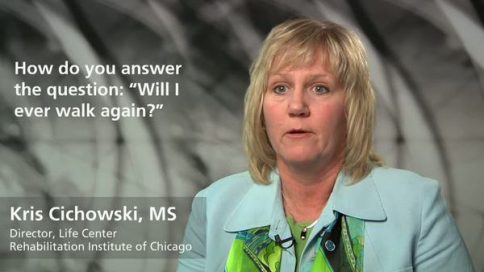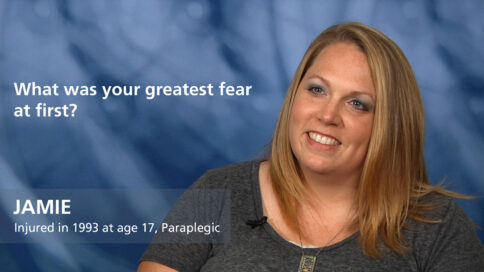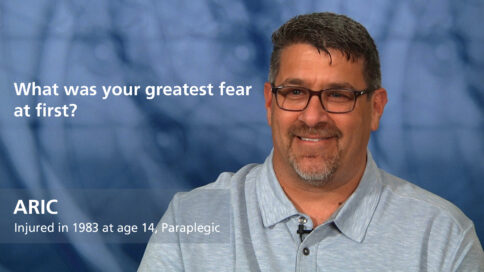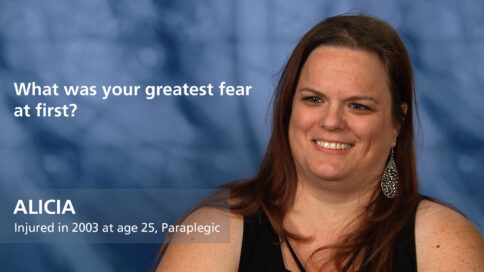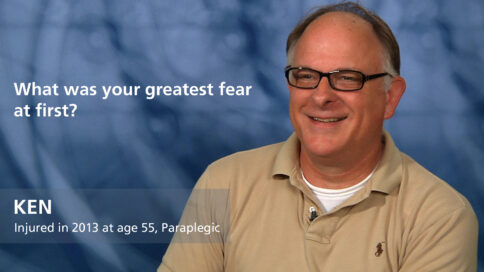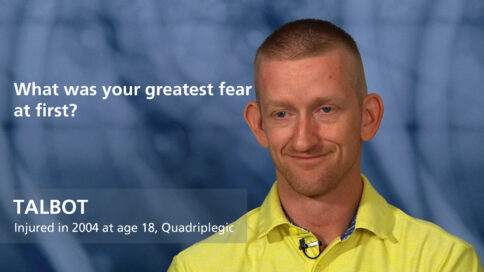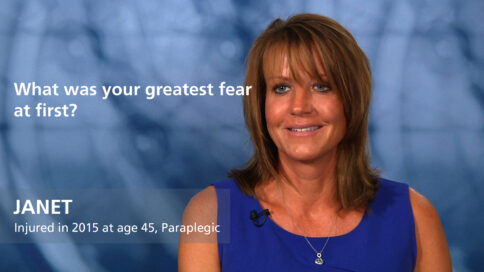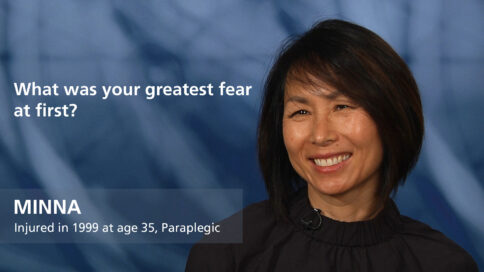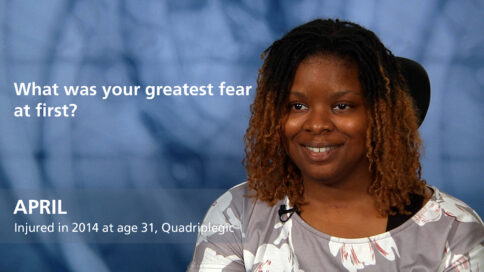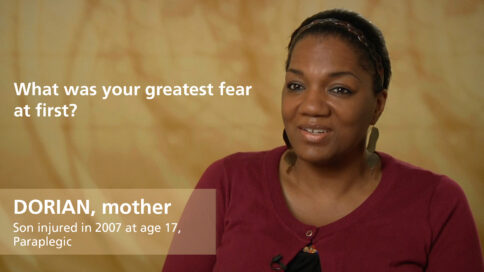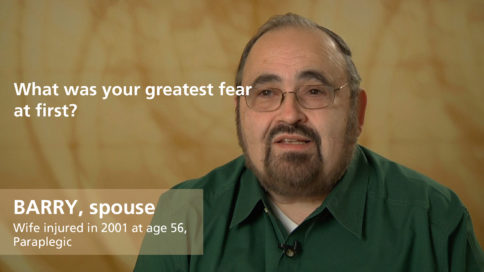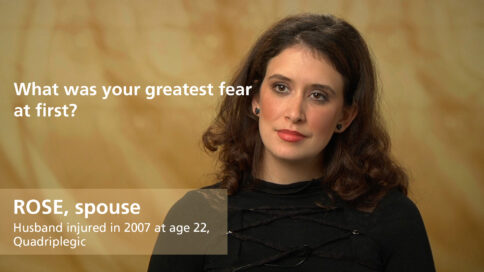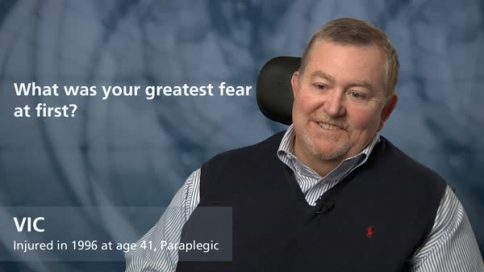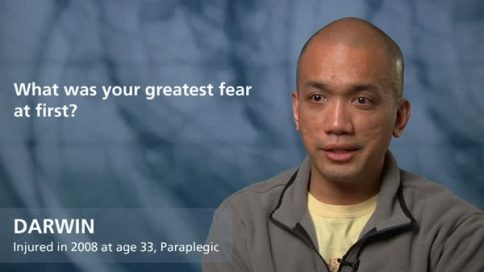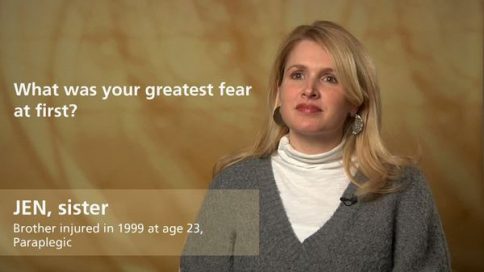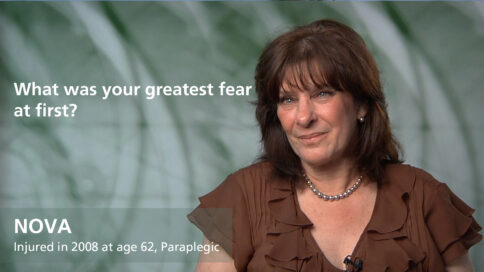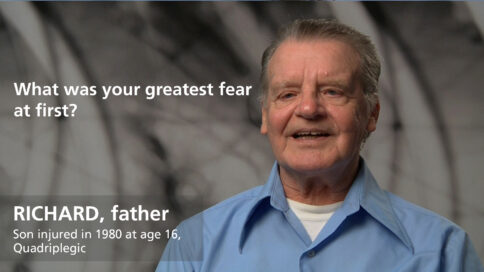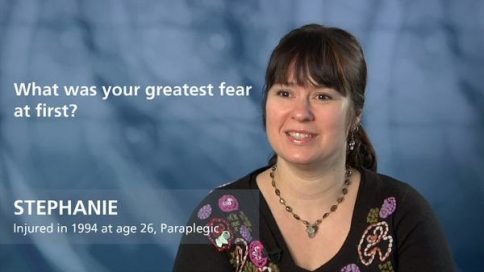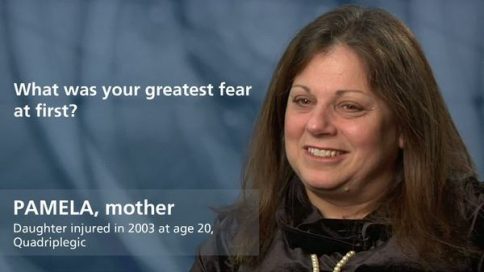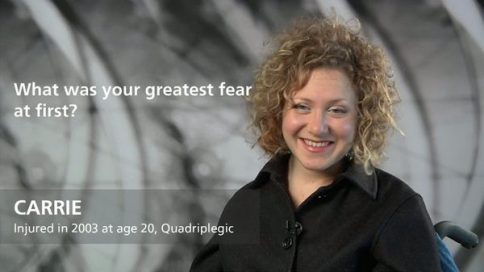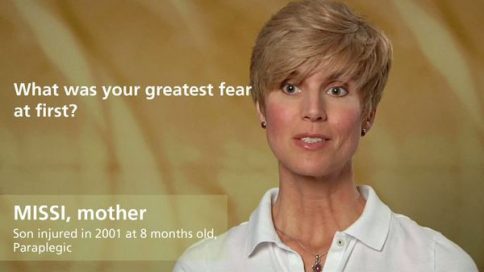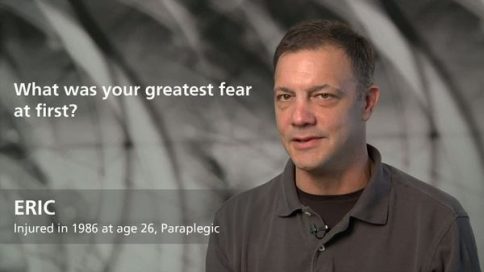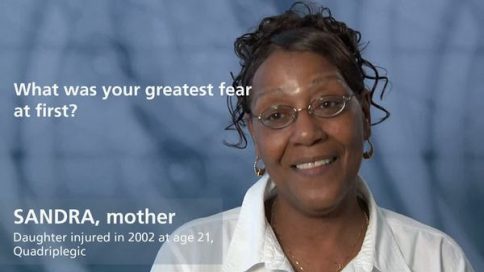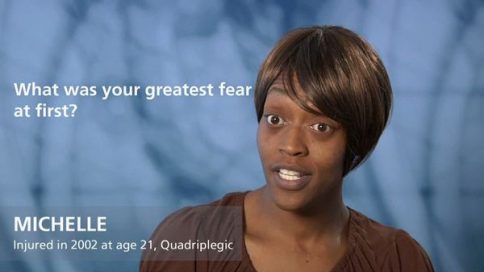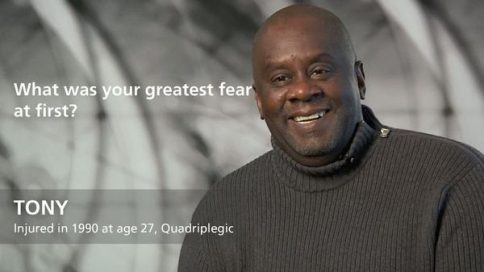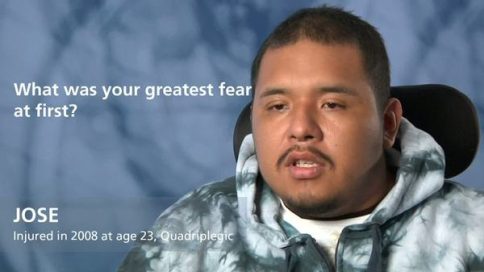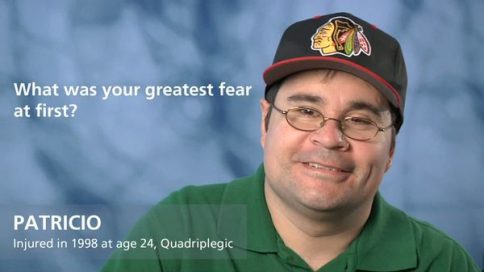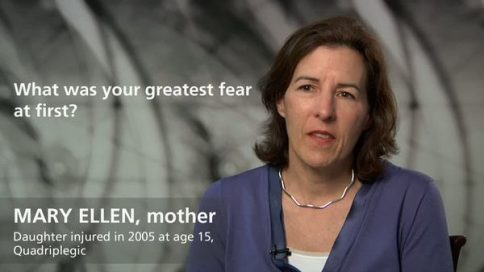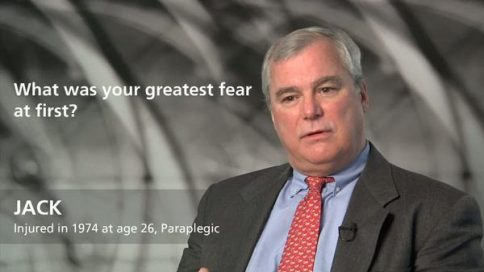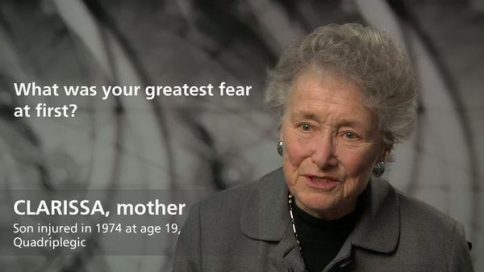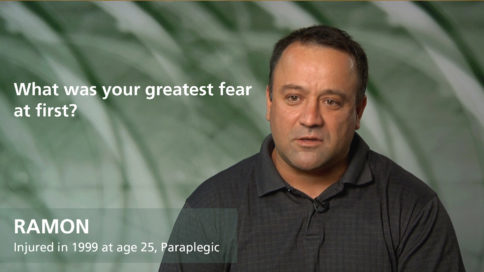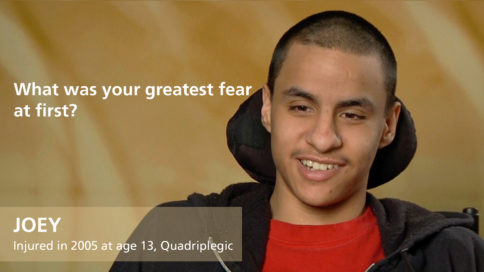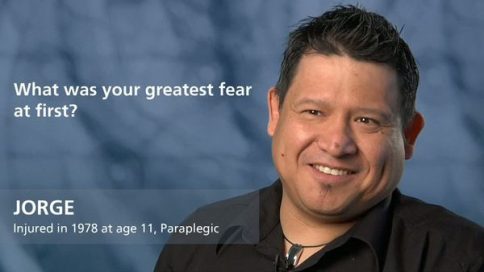How long does it usually take for feeling and movement to return after a spinal cord injury? - David Chen, MD
|
|
How long does it usually take for feeling and movement to return after a spinal cord injury? |
|
David Chen, MDMedical Director, Spinal Cord Injury Rehabilitation Program, Rehabilitation Institute of Chicago |
||
| Read Bio | More Videos by David Chen | |
|
Share |
||
Transcript
In terms of the duration of time when an individual may hope to see some return of neurologic function, that will hopefully lead on to greater return, varies a lot from individual to individual. Generally, from experience, we’ve seen that individuals who begin to see some neurologic return, although it may be small, within the first 8 to 12 weeks after injury, tends to be a good prognostic sign for further return of neurologic function. But we’ve all seen individuals who have begun to experience return at time points farther out from 8 to 12 weeks—at three months, four months, five months—who’ve gone on to see a more significant return. And that’s what makes it difficult to predict just how much time it may take to see return of function, and to predict just how much, and for how long you might see that return. A statement I hear from individuals is that, you know, “I’ve been told that I have one year to get back whatever I’m going to get back, and after that point, I won’t see any more return.” The reality is is that there is no internal clock in the body that says, “You’ve got one year from the time of injury, and once you hit that one year time point, nothing further will return.” Again, we’ve all seen individuals who have gone beyond 12 months, beyond 18 months, even as far as two and three years after an injury, and continue to see return of neurologic function that can result in a much higher functioning for those individuals. So there is no internal time clock that says, or alarm that says, “It’s one year from the time of injury.”
Show Less|
|
||
add
How long does it usually take for feeling and movement to return after a spinal cord injury? |
||
David Chen, MDMedical Director, Spinal Cord Injury Rehabilitation Program, Rehabilitation Institute of Chicago |
More Videos by David Chen | |
| Transcriptadd | share | |
In terms of the duration of time when an individual may hope to see some return of neurologic function, that will hopefully lead on to greater return, varies a lot from individual to individual. Generally, from experience, we’ve seen that individuals who begin to see some neurologic return, although it may be small, within the first 8 to 12 weeks after injury, tends to be a good prognostic sign for further return of neurologic function. But we’ve all seen individuals who have begun to experience return at time points farther out from 8 to 12 weeks—at three months, four months, five months—who’ve gone on to see a more significant return. And that’s what makes it difficult to predict just how much time it may take to see return of function, and to predict just how much, and for how long you might see that return. A statement I hear from individuals is that, you know, “I’ve been told that I have one year to get back whatever I’m going to get back, and after that point, I won’t see any more return.” The reality is is that there is no internal clock in the body that says, “You’ve got one year from the time of injury, and once you hit that one year time point, nothing further will return.” Again, we’ve all seen individuals who have gone beyond 12 months, beyond 18 months, even as far as two and three years after an injury, and continue to see return of neurologic function that can result in a much higher functioning for those individuals. So there is no internal time clock that says, or alarm that says, “It’s one year from the time of injury.”


